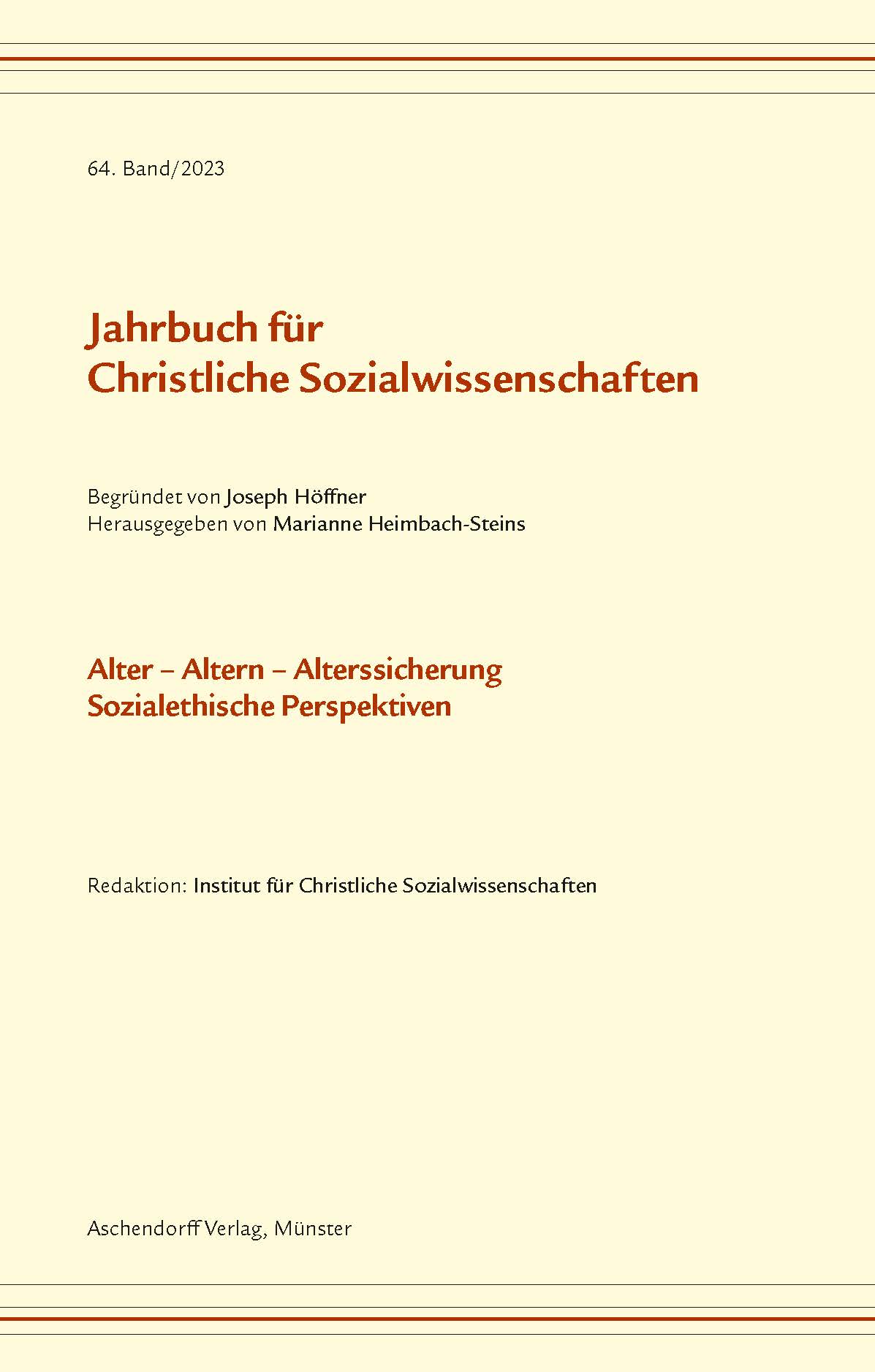Das Leben schützen im Alter
Perspektiven zukünftiger Sozialpolitikforschung
DOI:
https://doi.org/10.17879/jcsw-2023-5060Abstract
The psycho-physical vulnerability of the very old in particular justifies their special interest in protection. Institutions of the social system have to meet this demand sufficiently until the end of life, but for various reasons they cannot fulfil it satisfactorily. This seems to be not insignificantly related to characteristics of late modern societies, which among other things imply three risks for the elderly: risks of poverty in old age caused by certain (occupational and familial) life courses, frequently related social exclusions, in the case of people with a migration history also cultural marginalisation, as well as risks of a socio-spatially cut-off life in a nursing home. It is unclear which (institutional) pressure to adapt will arise from the ageing generations of the so-called 68ers and the baby boomers and with which new care concepts (e. g. caring communities) ways can be found out of regulatory impasses. The urgent socio-political challenges of the future will include not only the organisational development of care systems, but also the solution of problems of burden and distribution for society as a whole in the context of intergenerational fairness, which must be defined specifically. In view of the biographically diverse causes of possibly increasing poverty in old age and socio-cultural marginalisation, social policy and its research will in future have to take greater account of elements of a preventive social life course policy.

